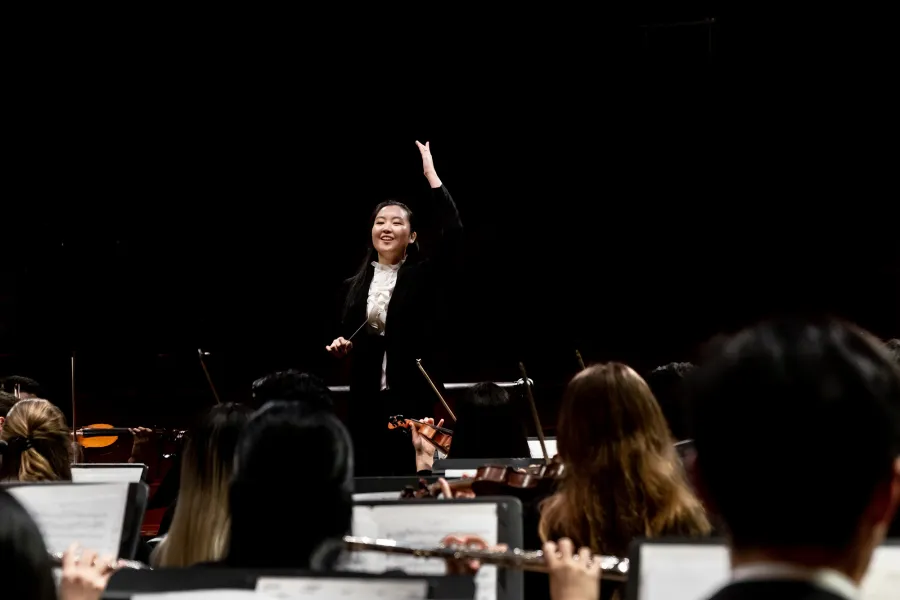
Ke Yuan Hsin, conductor
Gabriela Mora Fallas, conductor
Zongheng Zhang, conductor
Hank Landrum, clarinet
This concert will last approximately 60 minutes without intermission
Program
Eldar Hudiyev orch. Khudyev
Circus for Clarinet and Orchestra world premiere
Henry Landrum, clarinet
Zongheng Zhang, conductor
Paul Dukas
The Sorcerer's Apprentice
Zongheng Zhang, conductor
Maurice Ravel
Rapsodie espangole
Prélude à la nuit
Malagueña
Habanera
Feria
Gabriela Mora-Fallas, conductor
Franz Liszt
Les Préludes, Symphonic Poem No. 3
Ke-Yuan Hsin, conductor
About the Program
Program Notes by Mark Bilyeu, except Circus, provided by the composer
Eldar Hudiyev
Circus for Clarinet & Piano
COMPOSED 2023
PREIMERED world premiere
DURATION 5 minues
Acknowledged by the US government as an “Artist of Extraordinary Ability”, Eldar Hudiyev is an international award-winning composer, music competition judge, violinist, and pedagogue. His recent composing awards include: Best Original Song at the 8 and Halfilm Awards Film Festival, held in Rome, Italy 2023; Best Music Video at the Hollywood on the Tiber Film Awards festival 2023, Best Original Composition at the Chainsaw Game and Music Festival, USA 2021; First Prize at the International Music Composition Competition, Atlanta, GA 2021; Second Prize at the Red Maple Music Competition, Toronto, Canada 2021. As a violinist, Eldar has performed in major international concert venues such as Carnegie Hall, Davies Hall, Tchaikovsky Hall to name a few. He holds Master degree in violin performance from the Boston Conservatory of Music at Berklee. Eldar lives in the United States and is originally from the capital of Turkmenistan, Ashgabat city. Hudiyev writes: “Circus, composed in 2024, represents memories of my happy childhood, as well as internal sensations of the reality of today’s changing World. The orchestration was done by my brother Farkhad Khudyev, which beautifully represents my idea through the solo clarinet and the wide range of orchestral colors.”
Paul Dukas
The Sorcerer’s Apprentice
BORN October 1, 1865
DIED May 17, 1935
COMPOSED 1897
PREMIERED May 18, 1897, Societe Nationale de Musique, Paul Dukas, conductor
DURATION 10 minutes
Is there a piece of music more closely tied to Walt Disney than Paul Dukas’ The Sorcerer’s Apprentice? Within the first minute, we hear the basson’s famous bumbling march and visions of broomsticks and buckets immediately come to mind. It wasn’t yet fifty years after that first symphonic poem by Franz Liszt (also on this program) that the forty year old French composer Dukas wrote his own symphonic poem, subtitling it “Scherzo after a ballad by Goethe.” The famous German poet tells a story of a magician’s apprentice who learns enough magic to recite an incantation that will enliven a broom to fetch water. But in time, the apprentice is unable to stop the work from being done, and quickly becomes submerged. It isn’t until the sorcerer’s returns when calm is restored, and we hear the final four chords: a sign that the sorcerer has had enough of his apprentice, and offers a disciplinary “thwack” to correct the behavior. Dukas considered himself a teacher who composed, and while his output was never quick to arrive, he has been unfairly pigeon-holed as the composer who put Mickey Mouse in an oversized robe and cap.
Maurice Ravel
Rapsodie espagnole
BORN March 7, 1875 Saint-Jean-de-Luz, France
DIED December 28, 1937 Paris, France
COMPOSED 1907 – 1908
PREMIERED March 15, 1908, Orchestre des Concerts Colonne, France, Théâtre du Châtelet, Èdouard Colonne
DURATION 15 minutes
“Slender, inconsistent and fugitive” is how composer and music critic Gaston Carraud, described Maurice Ravel’s Rapsodie espagnole, after hearing the work’s premiere. Ravel crafted this four-movement rhapsody amidst several other Spanish-inspired pieces — his opera L’heure espagnole, and his song cycle Vocalise-Etude en forme de habanera were completed on either side of this orchestral showpiece. The work’s prelude is a subdued entrance, with muted strings, the second movement is a malagueña; a flamenco dance from the southern province of Málaga, Spain. The Habanera takes inspiration from Ravel’s earlier Spanish Habaneras, and the work closes with a feria: a lively festival, carnival atmosphere full of joyful bursts and orchestral colors.
Franz Liszt
Symphonic Poem No. 3, Les Préludes
BORN October 22, 1811, Raiding, Austria
DIED July 31, 1886, Bayreuth, Germany
COMPOSED 1845 – 1854
PREMIERED February 23, 1854, Franz Liszt, conductor
DURATION 16 minutes
“The best of me is my religious music,” wrote Franz Liszt. History has shown that, despite being one of the most influential musical figures of the 19th century, LIzst himself was not clairvoyant in predicting his output’s staying power: his religious works being overshadowed by his virtuosic piano concertos, solo repertoire, and several orchestral works. Among these long-lasting orchestral pieces is his Les Préludes. Originally conceived as an overture to a multi-movement choral work entitled The Four Elements, Liszt abandoned the project in 1850, with a nearly-complete overture. A few years later, he returned to the overture in 1853 as a stand-alone work with a new title inspired by the poem by French Poet Alphonse de Lamartine: Les Preludes. Liszt was known (and often derided) for his commitment to programmatic music — that is, music that was linked to a particular story or narrative. He was vocal about his distaste for absolute music, having called contemporaries like Chopin and Saint-Saëns and as “mere musicians who are “capable of nothing better or cleverer than using, propagating, arranging, and occasionally developing that which has already been achieved by others.” This new orchestral work based on the Lamartine poem he called a “Symphonishe Dichtung,” or a Symphonic Poem, forging a new orchestral idiom that would inspire Smenta’s Má vlast, Mussorgsky’s Night on Bald Mountain, and Strauss’s Till Eulenspiegel. Here, Liszt included the following inscription for his Lamartine work:
What else is life but a series of preludes to that unknown song, the first and solemn note of which is sounded by Death? Love is the enchanted dawn of all life; but what fate is there whose first delights of happiness are not interrupted by some storm, whose fine illusions are not dissipated by some mortal blast, consuming its altar as though by a stroke of lightning? And what cruelly wounded soul, when the storms are over, does not seek solace in the calm serenity of rural life? Nevertheless, man does not resign himself for long to the enjoyment of that beneficent warmth which he first enjoyed in Nature’s bosom. So when the trumpet sounds the alarm and calls him to arms, no matter what struggle calls him to its ranks, he may recover in battle the full consciousness of himself and the entire possession of his powers.
Les Préludes is Liszt’s most beloved symphonic poem, loved equally by upstanding humans, and also by Adolf Hitler, who utilized the work for propaganda during his Russian campaign. It became so ubiquitous with the Nazi party that the work was banned from public performance directly after the war.
About the Artists
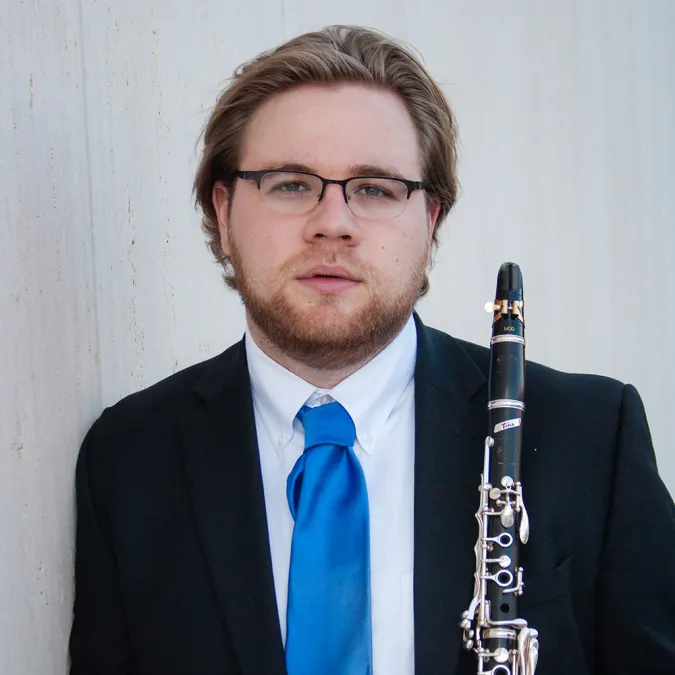
hank landrum
Recently appointed as Third/Utility Clarinet of the Chicago Sinfonietta by Music Director Mei-Ann Chen, Hank Landrum has also performed with numerous orchestras around the United States. These include the Houston Symphony Orchestra, Omaha Symphony, New World Symphony, Austin Lyric Opera, and more. Hank has spent his summers and winters holding positions and fellowships with Spoleto Festival USA, Sunflower Music Festival, Buzzard’s Bay Music Festival, the New York String Orchestra Seminar, Aspen Music Festival, the National Repertory Orchestra, and more. Hank has spent two years as Assistant Instructor of Clarinet at The University of Texas at Austin. While teaching at UT, he has pursued his Doctor of Musical Arts degree, and he will graduate in the Fall of 2024. Hank holds a Master’s degree from the University of Texas at Austin and a Bachelor’s degree from Florida State University. His teachers have included Jonathan Gunn, Deborah Bish, and Jonathan Holden.
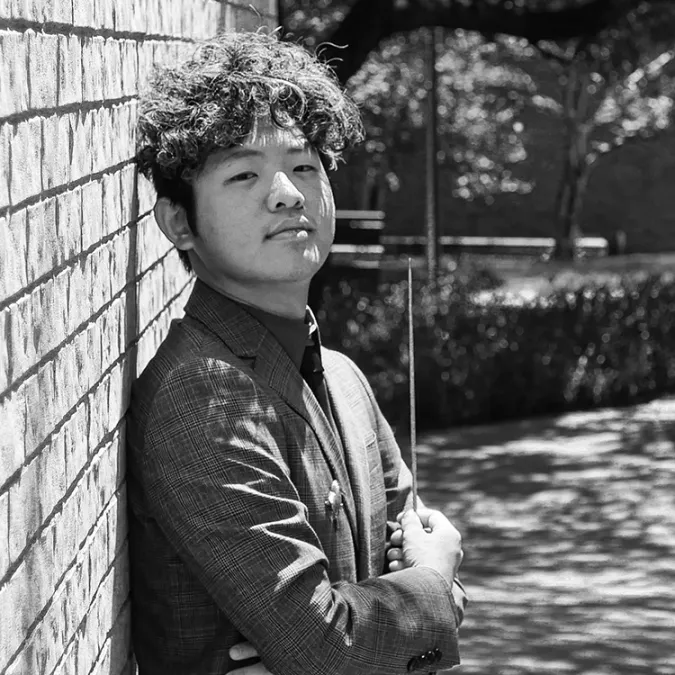
Zongheng Zhang
Zongheng Zhang will conclude his master’s degree in Orchestral Conducting with Maestro Farkhad Khudyev at UT BSOM this Spring. He holds a Double Degree in Violin and Viola Performance and Cognitive Psychology from Bard College. From 2021-2022, Zongheng served as Concertmaster and Principal for The Orchestra Now (TON) in New York, performing under Maestro Leon Botstein at Carnegie Hall, Fisher Center, Symphony Space, and Kennedy Art Center. He was also invited back to Bard Conservatory to serve as Concertmaster for Opera Salome by Richard Strauss in March 2022. While in Bard, Zongheng studied Conducting with Harold Farberman, Tan Dun, and James Bagwell. From 2020-2021, he was invited to conduct concerts at Bard College and got many good reviews from music critic organizations. After graduation from UT, Zongheng will continue his DMA studies in Orchestral Conducting at Michigan State University under Octavio Mas-Arocas and Kiki Kilburn.
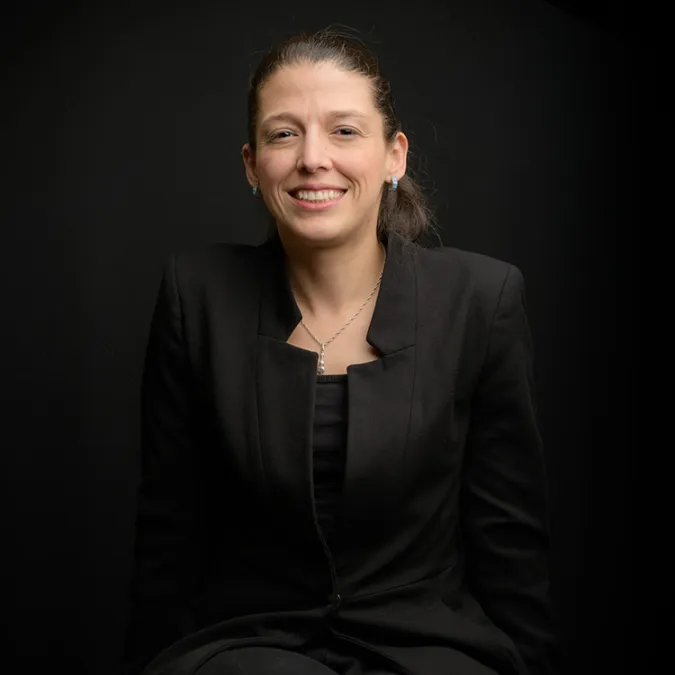
GABRIELA MORA-FALLAS
Gabriela Mora-Fallas is a Costa Rican conductor known for her energetic and passionate conducting style. She has participated in prestigious music festivals and workshops in the United States and around the world, including the American Academy of Conducting and the Pierre Monteux School for Conductors. She completed her master’s degree in Orchestral Conducting in Boston and returned to Costa Rica to actively participate in the musical scene of the country, where she was awarded the National Music Award in Conducting in 2017. Gabriela has served as guest conductor and cover conductor for the National Symphony Orchestra of Costa Rica and as principal Artistic Conductor of the Cartago Symphony Orchestra of Costa Rica. Besides her collaboration with professional ensembles, she devoted her time to collaborating with youth ensembles in Costa Rica, the United States, and El Salvador. Today Gabriela serves as co-conductor of The University of Texas University Orchestra where she continues her Doctoral studies and is a Mentee of the Taki Alsop Conducting Fellowship Mentoring Program.
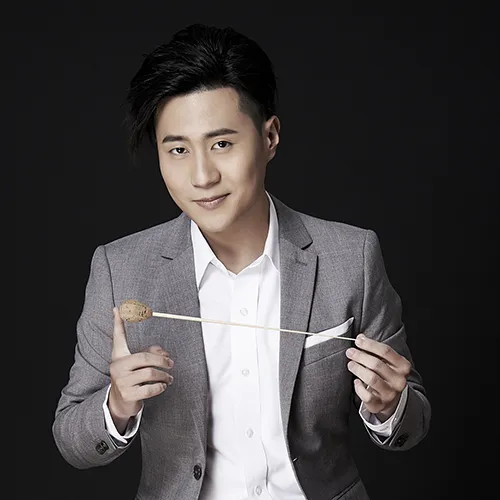
Ke-Yuan Hsin
Ke-Yuan Hsin is pursuing the D.M.A. in Orchestral Conducting at The Butler School, studying under professor Farkhad Khudyev. He has served as teaching assistant and assistant instructor in the University of Texas Orchestra program since 2019, when he started his Master of Music degree at the University of Texas at Austin. Ke-Yuan has worked internationally as a conductor. He has worked with the Armenian State Symphony Orchestra, Lliria Symphony Orchestra, Lviv National Philharmonic Orchestra of Ukraine, Orchestra Senzaspine, Williamson County Symphony Orchestra, University of Texas Symphony Orchestra, and National Chinese Orchestra of Taiwan, and received the Conducting Certificate at the National Chinese Orchestra Taiwan Academy. Ke-Yuan participated in several international conducting masterclasses and studied with Daniele Gatti, Carl St. Clair, Luciano Acocella, Jerry Junkin, Larry Rachleff, Donald Schleicher, Rodney Winther, Yan Huichang, Paul Chiang, Apo Hsu, Annie Chung, and Tsung Yeh. Ke-Yuan has been the semi-finalists in both 17th Khachaturian International Conducting Competition and the 1st edition Lliria City of Music Conducting Competition.
University Orchestra
VIOLIN I
Angelica Sharma 1,2
Om Joshi
Eric Liang
Rishi Raj
Aditya Narayanan
John Goodearl
Deyu Li
Felipe Benitez
Ashley Chu
Christian Dipert
Vivian Bui
Nathan Kennedy
Ashleigh Esquivel
Jeremy Tham 4
Ana Rodriguez
VIOLIN II
Adriana Rizk
Jada Li
Jasmine Chou
Thomas Castillo
Amy Sutthipong
Lucy Hamre
William Zhang
Nitya Lohia
Amy Yamamoto
Brendon Quan 3
Ximena Cazares
Seva Joshi
Joyce Zhuang
Morgan Hsieh
Allan Chen
VIOLA
Ashlyn Roberts
Audrey Sohn
Brianna Pellerin
Caroline Hughes 3
Christina Liu 4
Devin Foss
Dilynn Derden
Jaela Barrera
Joseph McPeek, 1,2
Minami Krembs
CELLO
Aarya Patel
Akhil Gharpurey 4
Aliza Gomzin
Allison Tseng
Andrew Dang 1,2
Corey Nguyen
Dennis Kostjuhin
Helena Chandy
Irene Benavides-Perez
Jayden Arellano
Jonathan Choi
Jwalanthi Ranganathan
Mark Wen
Michael Chung
Tony Nguyen
Yi-Chien Lian 3
DOUBLE BASS
Brandon Chiu
Emily Layton 1,2
Shane Rybacki 4
Thomas Hendrix
Thomas Langford 3
Travis Langford
FLUTE
Annika Moon 1,2
Brandon Nguyen 4
Hannah Merrill
Katarina Bellon
Kenneth Qu
Kevyn Salazar 3
OBOE
Lauren Matus 2,3,4
Rachel Cox 1
Cesar Meono-Monsivais
English Horn
Lauren Matus
Cesar Meono-Monsivais
Clarinet
Alexander Huang
Alex Vo 2
Boyang Liu 3
Carson Nguyen
Henry Lalonde 4
Samuel Wang
Bassoon
Hennah Hajari 1,2,4
Hudson Fish
Katie Hester
Kishan Patel 3
Gavin Remo
Suhani Ramesh Kumar
ContraBassoon
David Hiester
Horn
Dhanush Jain 3
James Williams
Jori Barash 1,2
Matthew Herbst 4
Shiv Desai
Trumpet
Adam C. Dimas
Luke Owens 1–4
KeYuan Hsin
Trombone
Jace Byrd
Raj Sukumar 1
Ross Ganske 2,3,4
Tuba
Riley McMahon
Percussion
Fiona Lee
T.J. Anderson
Spencer Rhodes
Piano
Hyuna Shin
Celeste
Weizhen Lai
Harp
Hanna Beeler
Kirsten Karamihan
Lilah Luksha
PRINCIPALS
1 Hudiyev
2 Dukas
3 Ravel
4. Liszt
Event Details
Free Admission

